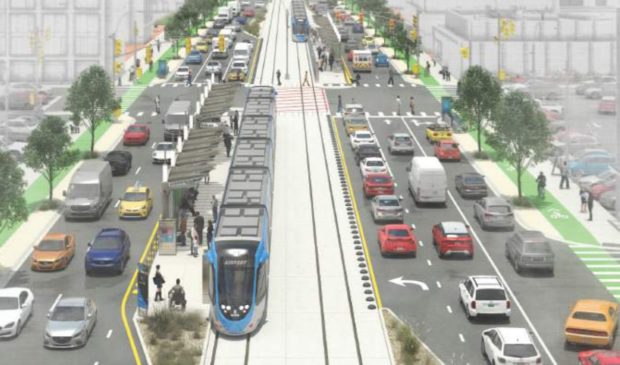Mobility Committee hears displacement concerns
Monday, August 9, 2021 by
Seth Smalley At the Mobility Committee meeting on Friday, City Council members fielded discussion about both Capital Metropolitan Transportation Authority’s Project Connect and the Texas Department of Transportation’s involvement in the Interstate 35 expansion plan. Meanwhile, community members calling in to the committee expressed their concerns about the two plans’ potential to displace low-income residents living adjacent to the respective corridors.
David Couch, the program director for Project Connect, updated the committee about a $2.88 million Federal Transit Administration grant for electric buses, a new Capital Metro station at Q2 stadium, new pickup zones in Oak Hill, the completion of 15 percent design drawings for the Orange and Blue lines, and $36 million in FTA grant funding intended for the MetroRapid Pleasant Valley and Expo lines.
Couch said that construction for the Orange and Blue lines is slated to begin in four years and last for five years, while the Red Line (the commuter rail running roughly north to south through the city) will be completed in two years. The light rail lines also run north and south through the center of the city, though the Blue Line will begin at the airport and run east-west along Riverside before turning northward at Auditorium Shores park.
Council Member Ann Kitchen wanted to know whether Project Connect staff were on schedule for the Project Connect line in Oak Hill, in terms of submitting preliminary paperwork to the FTA. She wanted to go over the paperwork before it was submitted (which Couch said would happen in roughly two weeks).
Council Member Alison Alter also asked about the timeline, specifically whether the city would “still be in the running” to receive grant money from a federal infrastructure bill, given Project Connect’s current rate of progress.
Couch responded that the funding in the infrastructure bill is not currently in the cards for Austin.
“We’re probably about three years away from anything that applies and gets us to the full grant-funding agreement,” Couch told the committee, going on to emphasize the need to get Project Connect listed in an annual FTA report. “The annual FTA report that goes to Congress will give us that visibility. As we move ahead, yes, we will be eligible for funding. But right now, we’re about three years off from getting anything with a federal component.”
Public speakers cautioned about the impact Project Connect could have on nearby communities, which has been an ongoing focus of the committee.
“Thousands of low-income families and hundreds of small businesses are at imminent risk of involuntary displacement along Project Connect quarters throughout Austin,” David King said, noting that the $300 million anti-displacement fund is specifically intended to prevent this from happening. King suggested directing these funds to direct cash payments to low-income families, communities of color and small businesses adjacent to the Project Connect corridors.
King also advocated against using the $300 million for market-rate mixed-use developments, which he maintained would actually facilitate the involuntary displacement of low-income families and small businesses.
Project rendering courtesy of Capital Metro.
The Austin Monitor’s work is made possible by donations from the community. Though our reporting covers donors from time to time, we are careful to keep business and editorial efforts separate while maintaining transparency. A complete list of donors is available here, and our code of ethics is explained here.
You're a community leader
And we’re honored you look to us for serious, in-depth news. You know a strong community needs local and dedicated watchdog reporting. We’re here for you and that won’t change. Now will you take the powerful next step and support our nonprofit news organization?




